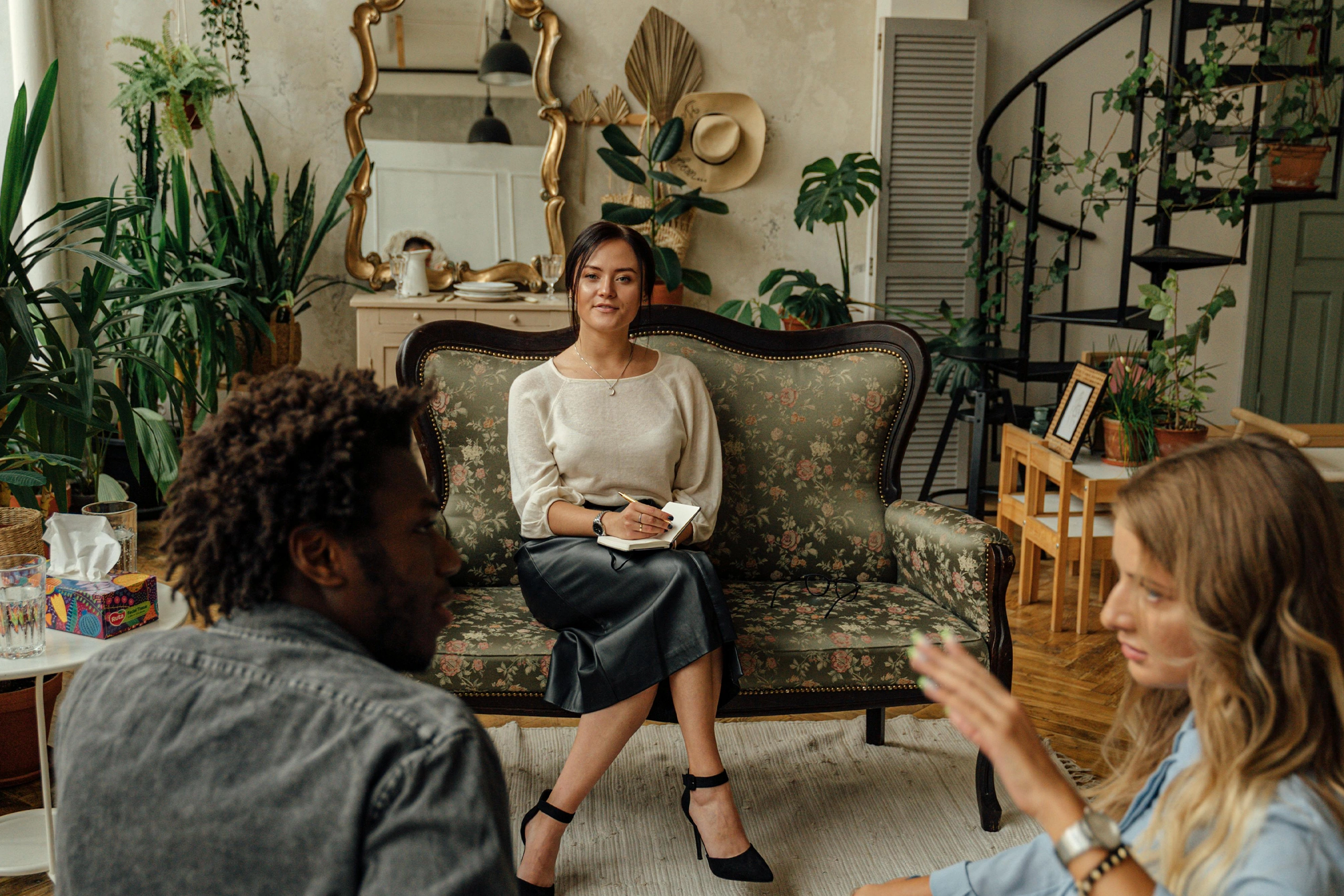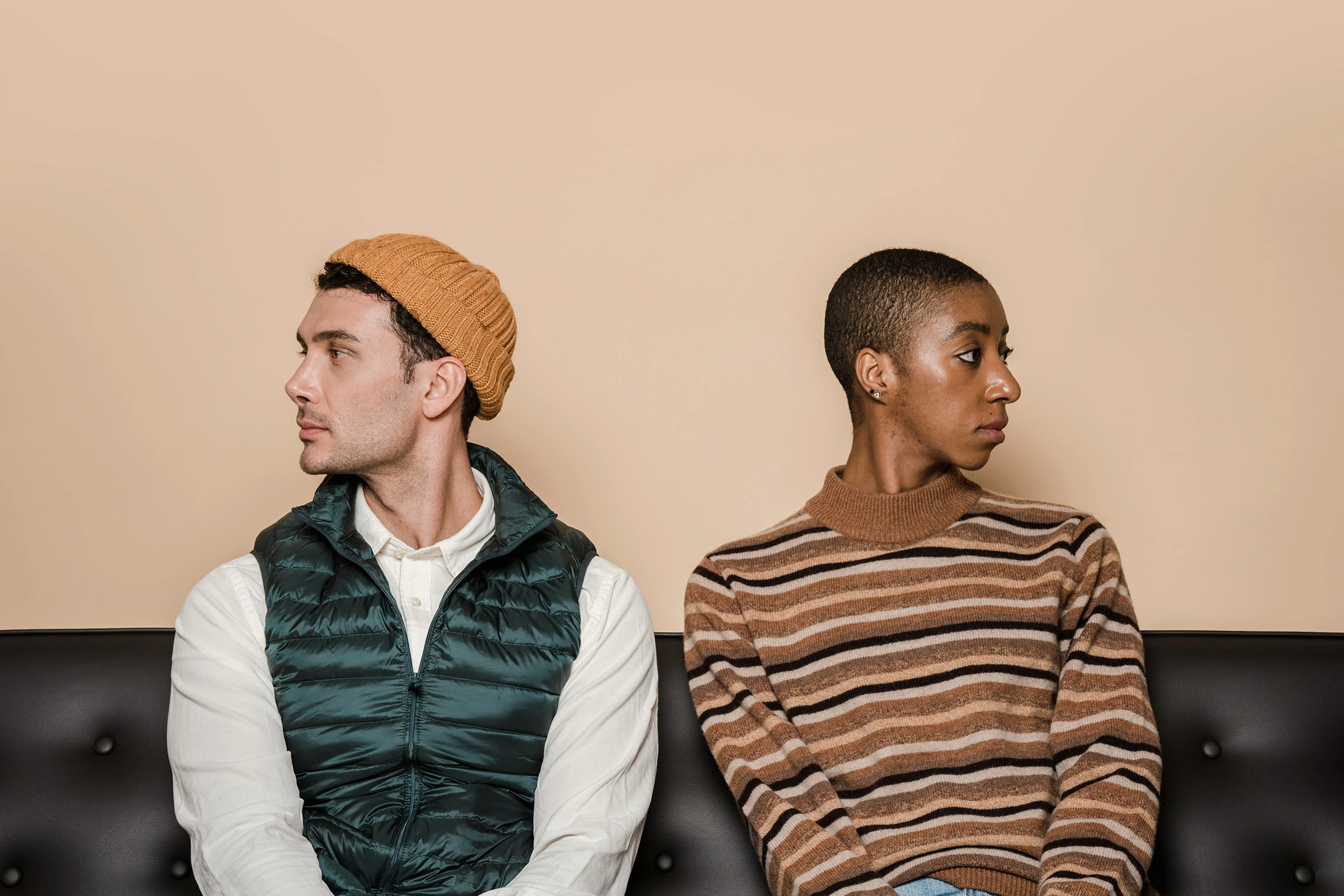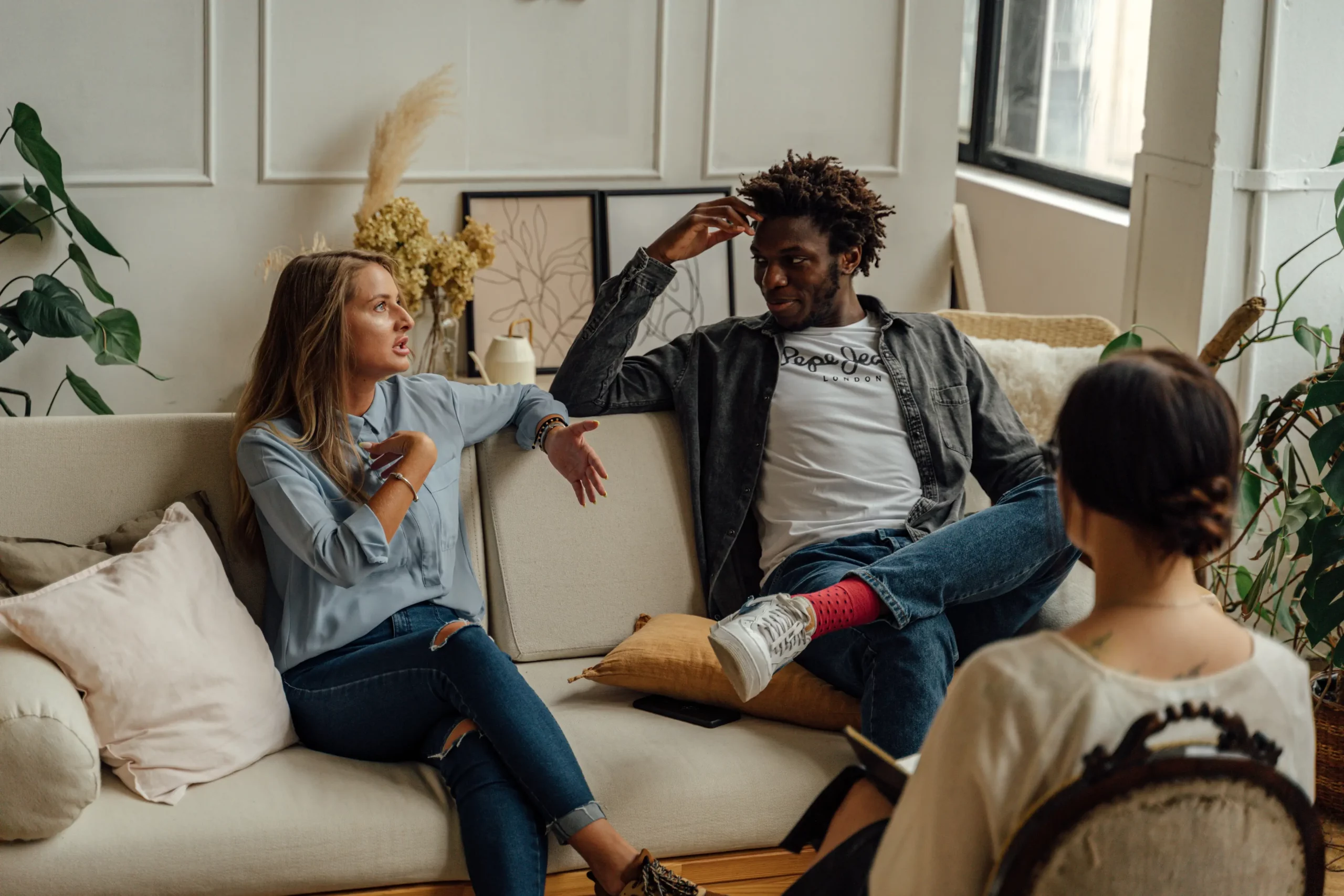Whether you’re struggling with boundaries, trauma, or addiction, these 3 steps will show you how to fix your codependent relationship…
Starting with the truth about that so-called “codependency.”
Follow These 3 Steps To Fix Your Codependent Relationship:

1. Normalize What's Happening (Attachment, not Dependence)
Codependency, schmodependency.
As a couples therapist, I never use the term “codependent” for three very important reasons:
- It’s overused
- It’s outdated
- It’s actively an obstacle to couples work!!
When “codependent” was coined in the 70s/80s, it was used to describe the seemingly paradoxical behavior of those in relationship with people who were addicted (or, at the time, “chemically dependent”).
You see, the loved ones of the addicted wanted them to be healthy… yet everything they did made it easier for them to keep using.
The explanation that these researchers came up with—that their loved ones were suffering from a psychological “need to be needed“—makes perfect sense…
If you ignore the one of the most validated methods in all of relationship psychology:
Attachment.
The truth is, everything these supposed co-dependents were doing is perfectly explained by regular ol’ human behavior.
To dub attachment behaviour in adult life regressive is indeed to overlook the vital role that it plays in the life of man from the cradle to the grave."
Nothing pathological about it.
The same goes for every other kind of couple who calls themselves codependent…
And understanding your relationship through an attachment lens isn’t just important because I hate the word “codependent.”
It will also fundamentally change the way you experience your relationship.
Stop Calling Yourself "Codependent"
Here’s what attachment science tells us about humans:
We need to be emotionally bonded from the cradle to the grave.
From the minute you enter this world—before you need food, water, shelter, anything!—you need to have a good enough other.
Without that person taking care of you, you absolutely could not survive. You’d be a baby-eating bear snack.
If your primary attachment figure leaves you, you’re dead, and your body was developed through millions of years of evolution around that fact.
Basically: You are wired for love.
That need comes built-into the “human being” package, and it doesn’t suddenly go away when you reach adulthood and your primary attachment figure shifts to being your partner.
There is nothing wrong with you.
You’re just two people who need each other for the same reasons every other human being needs love.
Study what's really happening
What you’re experiencing is normal—you’re not bad, broken, or cursed.
That doesn’t mean you’re not stuck in unnecessary suffering.
I’ve singled out 3 reasons a couple may label themselves as codependent (or so-called “signs of codependency”) so I can explain what might really be happening…
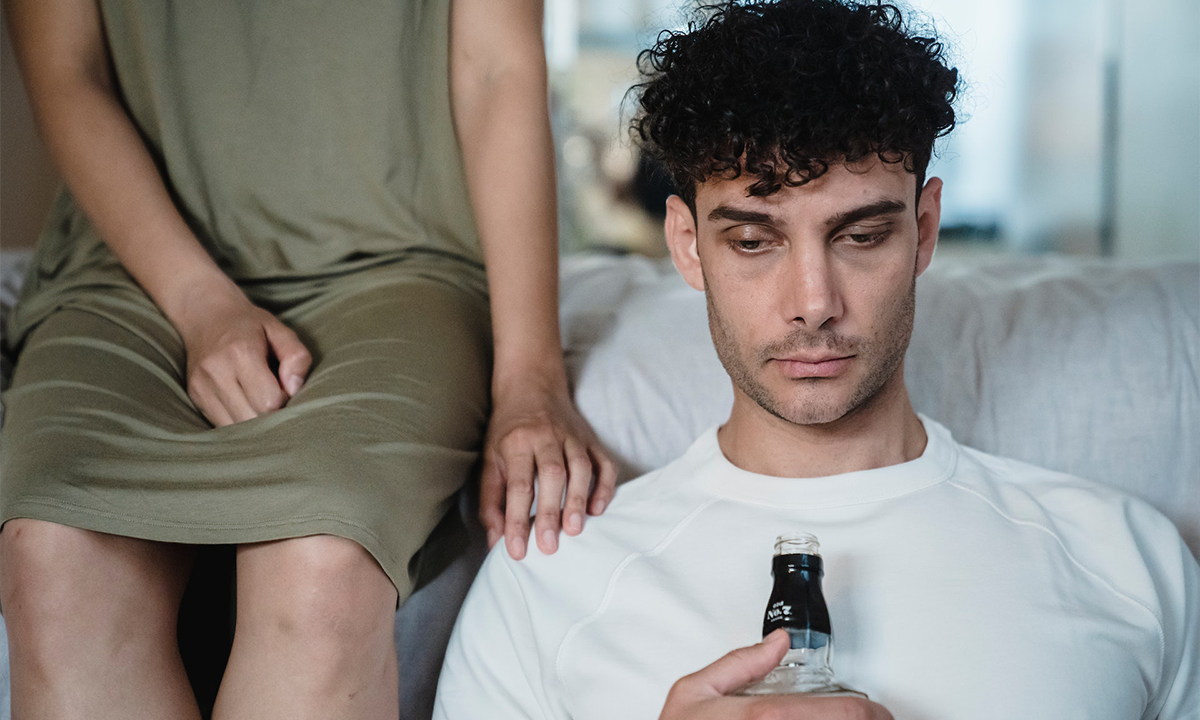
1st Case: You’re in an Addicted/"Enabling" Dynamic
This is the original intended use of the term “codependent”—one of you is addicted or unable to survive in the world without some kind of addiction-like behavior.
This can mean…
- Drug addiction
- Alcoholism
- Sex addiction
- Gambling
- Video game addiction
… et cetera.
In the original framework for codependency, they looked at the partner of an alcoholic and they went,
“Why aren’t they making rational decisions?
How come they are obsessing about the behavior of their clearly incapable spouse?
Their spouse is going to keep choosing to drink and everything they do is making sure that it’s actually easier for the alcoholic spouse to keep drinking…
They must love to be needed!!!”
Oof. That’s a pretty damning judgment!
It’s also wrong.
If you're the partner or spouse of an addicted spouse, here's what's really happening…
You have accurately determined (consciously or subconsciously) that your significant other won’t show up to meet your emotional bonding needs.
It’s like a possession—they are not currently capable of choosing you, your relationship, or other healthy choices over their relationship with this other entity.
So you can’t ask for your needs to be met. They won’t be.
And remember: You don’t stop feeling all the same feelings you felt when you were little because you’re a big grown up now.
Attachment. comes. first.
No matter how crap a little kid’s parent is, they’ll make any compensation they have to—lose every friend, get rid of every toy—to not lose Mom or Dad.
You’re just like that little kid. We all are.
You need to stay emotionally bonded to your person.
But they aren’t capable of showing up for you, so you compensate. You…
- Make every sacrifice
- Make every compromise
- Obsess over their behavior
- Try to protect them from themselves
…because they are everything to you and you could lose them!!
You are incredibly brave and heroic trying and trying to save this person from themselves. You don’t need to be ashamed of that.
In fact, accepting this part of you and accessing the pain of your experience is the key to repairing your “codependent” relationship.
Of course, what you resist persists.
When you’re in a relationship cycle, the very ways you try to make sure your partner doesn’t drink, use, or engage in other destructive behaviors will become the input they interpret as, “See, I should have a drink!”
This is what the original discussions and interviews around the concept of codependence we’re describing, but this dynamic isn’t unique to addicts and their loved ones.
Any defense mechanism a person employs to reduce the pain of rejection or abandonment—anything from using drugs to quietly watching tv alone in your room—is more likely to be activated when a person feels criticized or controlled.
Before the next step…
In order to resolve the cycles you get into and be fully there for each other, you have to first address the third person in the relationship
It’s impossible to safely ask for your needs to be met (the next step in fixing a codependent relationship) while one partner is living in their cheating partner’s house.
To give your relationship its best chance, the addicted partner needs to get to a place where they can show up for the other—be fully present.
This can mean individual counseling, a 12-step program, or you can call SAMHSA’s National Helpline at 1-800-662-HELP (4357) now or find a treatment facility.
Then you can safely move onto Step 2.
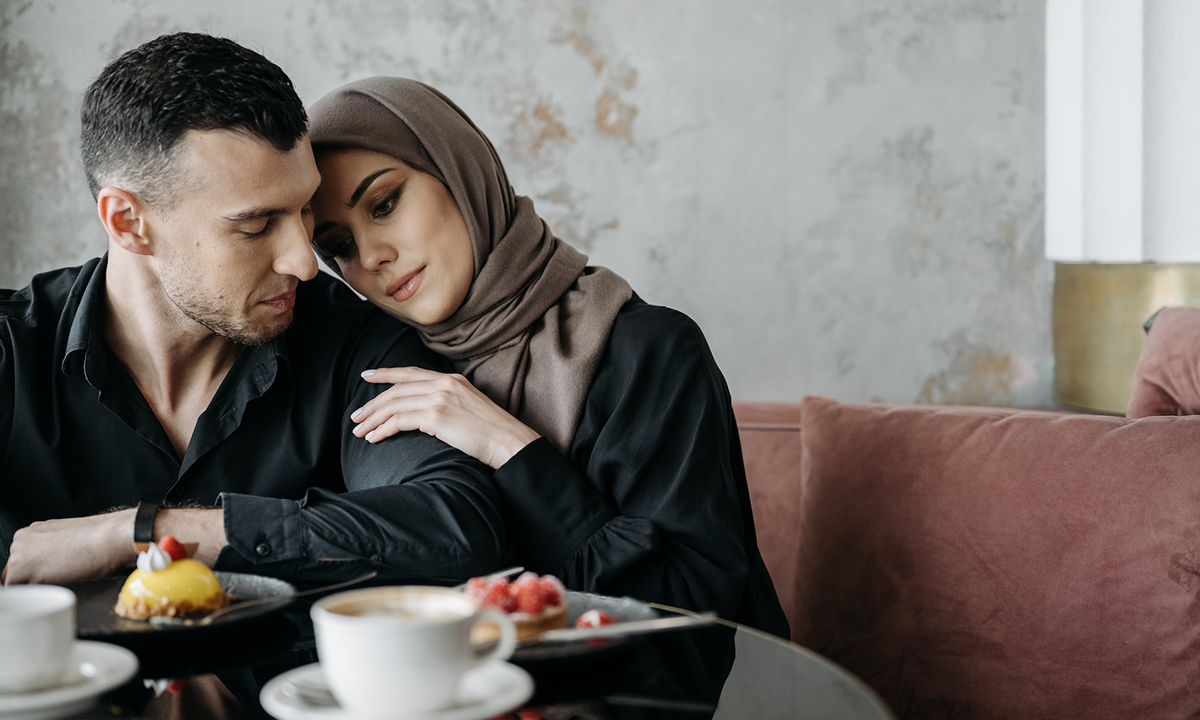
2nd Case: You're That "Overly Attached" Couple
This is the way people use “codependent” in everyday speech…
“We need each other too much.“
“We’re emotionally dependent on each other. “
“We’re trying to resolve deeper needs with each other that really are our own responsibility.“
…Kinda mean-spirited, isn’t it?
Let’s look at the facts:
- You and your partner are hardwired to have a primary attachment figure from the day you’re born to the day you die.
- In infancy, the human organism literally gives over certain survival processes to the parent.
- In fact, you don’t even have a concept of your first attachment figure as a separate person at first!
- That connection is essential. Your body still knows you’ll die without it.
If your person doesn’t like you, you’re at risk of dying. If they’re not okay, you’re not okay.
As an adult, this means your partner is the most important person in the world to you, and you to them.
Stop! Fighting! It!!!
You NEED each other. When it looks like you’re not there for each other, of COURSE it’s going to hurt.
And every time you get hurt, it’s going to be multiplied by all the past hurt you experienced in your previous attachment figure relationships—past partners and your parent(s) or guardian(s).
And so now you’re not just trying to resolve the disconnection you’re feeling in your relationship with the most important person in the world to you…
You’re also now trying to resolve the emotional bonding wounding of your entire past.
So, yeah, you’re going to feel, “I really need to know I’m important to you.” or “I really need to know that you’re not disappointed in me.”
That is not a bad thing.
It’s actually really awesome that you’re interdependent with each other and that you’re trying to help yourself and each other resolve these deep emotional wounds…
Because those wounds can ONLY be healed inside a primary relationship like the one you’re in.
It makes sense that you:
- Get scared that your partner might leave you
- Get worried that they’ll get hurt
- Don’t want to go places without them
- Get angry or upset when they’re sick
- Have a crappy day when you think they might be upset with you
Now, the things that you do when you feel the threat of disconnection probably result in more suffering, but to heal, you don’t actually need to get rid of those parts of yourself.
You need to surrender to them.
You need to understand that you only react negatively…
Criticizing, controlling, being overbearing, withdrawing, deflecting, avoiding…
Because that’s only the way your organisms know how to protect themselves from the threat of being disconnected from each other.
Look at how painful it is for both of you to not be connected…
And look how much you mean to each other!!
From that place—not a place of “we’re pathologically codependent”—we can start to repair your relationship, heal past attachment wounding, and give you the power to do it over and over again for the rest of your lives.

3rd Case: You're Disconnected From Your Needs
Like the second use case of “codependent,” this one features a partner who is capable of being present and meeting the others’ needs…
But because of past experiences, it feels impossible for the other to take advantage.
This can mean a partner who…
- Is focused on their partner’s feelings
- Is focused on their fulfilling partner’s needs
- Is uncomfortable voicing their own feelings and needs
- Frequently doesn’t know how they’re feeling or what they need
Just like the Addicted/”Enabling” couple and the “Overly Attached” couple, the first step is recognizing that this is the most normal thing in the world.
You don’t need to use a negative label to heal your relationship.
You just need to understand it.
In this case, something happened in the affected partner’s relationship with their primary caregiver when they were little where they didn’t develop the ability to feel loved.
Which, in attachment science, translates to not knowing they are safe.
They were in survival mode.
This can look like:
“I can’t feel myself because I had to be obsessed with you, always wondering if you would be there for me…”
or…
“I’m bad for even asking someone to meet my needs because when I would, my parent would always get mad at me…”
In any event, let’s say that “my needs are not worthy” were the color green…
This person is walking through the world with a green filter over their eyes.
It doesn’t matter if their partner is some mix between Mother Theresa, the Dalai Lama, and the Pope, just praying for the chance to be there for them and love them up…
All they see is green.
How sad for them!!
How painful for that little one inside you who didn’t get the love they needed, and now this is what they have to do to survive??
F*ck no!
Now you’re going to take a break from surviving and feel how sad it is for the little person inside of you and love and care for them…

2. Ask for your needs to be met (at the right time)
This is the “threshold moment.”
This step is only possible once…
- Substances or addiction aren’t preventing either of you from being present in the relationship *
- You recognize that there’s nothing “codependent” about having emotional needs in your primary attachment relationship.
- You get, cognitively and emotionally, that the pain you both experience and your “bad behaviors” are all a result of disconnection from each other.
*At Empathi, we wait until the addicted partner is at least 30 days out of a program to begin couples work.
Only once your guards are down…
And you know that when your partner is distant from you or criticizes you, it’s really because they got scared you didn’t love them…
And you have accepted that the behavior you’re most ashamed of in yourself actually completely makes sense…
And you have started to trust that the most difficult parts of your relationship only happen because you love and need each other so much and that there’s nothing wrong with that…
Then you can ask for your needs to be met.
But not a moment before—in fact, I have a whole article on why you usually shouldn’t just ask for your needs to be met.
Here's how asking for your needs to be met works:
In each of the 3 “codependent” cases—addicted/”enabling,” “overly attached,” and being disconnected from your needs—there is some missing experience you are both trying (and failing) to reach.
At some point in your lives, you each got the message that they’re going to be alone or unacceptable.
So when it looks like that’s happening again, you react in ways that make your partner feel alone or unacceptable—and they do the same back to you…
Even though all either of you wants is to be not alone and accepted (this is the experience you were missing as a kid or in past relationships).
So the only way to get there is to drop your defenses. This is why you have to study and normalize what’s happening.
And through that study, you will start to see and trust the vulnerable, loving, and hurt parts in your partner…
And access those scary, vulnerable places inside yourself.
And so you come to…
The Threshold Moment
Path #1: Finding Your "No"
For some couples, asking for their needs to be met will simply be outside of their window of tolerance for triggering, activating, or risky experiences.
My job isn’t to tell you that you have to do it anyway.
My job is to help you feel your feelings better. To help you understand yourselves and your relationship fully.
To march you to the threshold and let you decide what needs to happen.
And an important developmental step for some people who label themselves “codependent” will be finding the ability to say, “No.”
To say…
“You know what? I’m back in the place where I feel unloved. I’m seeing again that the person’s not going to be able to be there for me…
I got all this information now and I’m not going to keep trying here and keep getting hurt.
I’m going to be really brave. I’m going to say, ‘No.’
‘No.’
‘No.‘”
You couldn’t say “No” to your parent, but now, it’s safe.
But chances are, we’ll reach the missing experience instead (or even after you find your “No”).
Path #2: Having the Missing Experience
From a place of, “This is so sad and it’s so painful, I didn’t get the love I needed before and I thought it was happening again…”
With your partner’s defenses lowered…
And even though actually having your needs met seems unimaginable…
You reach out for your partner and have them comfort you.
You say, “This time I’m going to dare to feel this terror and be connected.”
And your partner will love you up in all the hurt places.
Here, you don’t have to lose yourself completely to receive love, or withdraw inside yourself to avoid judgment.
Who you are is enough, anxieties and poor coping mechanisms and all.
Having your partner meet your needs in a moment of hurt and vulnerability, understanding what it means to the little kid inside of you, is one of the most healing and powerful experiences you’ll have.
And then you’ll do the same for your partner.
You’ll be there for them and love them up in all their vulnerable, hurt places, and rewire their brain real-time to understand that they are truly loved and safe in the world.

3. Rewrite Your Story
Now that we’ve had this transformational experience in both directions, we have one more vital step to take…
You see, we’re trying to rewrite decades of storytelling about yourself, stories saying that having a happy relationship means:
- Placating
- Not reacting negatively
- Trying to fix your partner
- Trying to fix yourself
- Meeting your needs on your own
- Always being “good”
And that’s how it usually goes… So now we have to look at the journey you just had.
You actually:
- Let yourself feel your sadness
- Recognized that you actually did have needs
- Asked your partner to meet those needs…
- And they did!!!
Look at how much better that feels. Look how much you mean to each other.
And now that you understand your relationship, you can do that over and over again.
You don’t have to go back to doing it the old way.
The next time you both get hurt, you can say,
“I’m going to go to the club, but it’s hard for me because I get worried you’re not okay, and I get scared I’ll lose you.”
And they can go, “I know, and it’s hard for me when you go out sometimes because I get scared I’m not good enough and I’ll lose you to someone else.”
And then you’re comforting each other and giving each other kisses and you’re texting them little heart emojis from the Uber.
That’s the “f*ck yeah” story.
Not the “We’re codependent, we have to meet our own needs,” story you’ve been telling yourself.

The Big Truth Bomb: Your Relationship Makes Sense.
You make sense.
I don’t care if you’re calling yourself codependent because:
- You and your partner are preoccupied with each other 24/7
- The way you try to protect your partner actually enables self-destructive behavior
- Your partner is totally happy to be there for you but you’re stuck in past trauma
You just have some experience that’s missing and there are some steps we need to do—inside yourself, each of you as individuals, and then together—to resolve them.
What an amazing relationship to be in where you get an opportunity to work on these things.
We don’t want to get rid of the parts of you that care so deeply about each other that you get scared and hurt when you’re disconnected.
We need those.
Because the only place you’re going to resolve wounding is in a primary relationship where it’s happening in the present moment…
You’re triggering each other and then you’re there for each other in a way that creates the missing experience you’ve needed all along.
Here's How to Fix a Codependent Relationship:
Try thinking about it differently.
You’re just two people that love each other. Be kind and loving to yourself and each other.
And try to find someone who can kindly and lovingly guide you into resolving this epic task you’re undertaking together.

